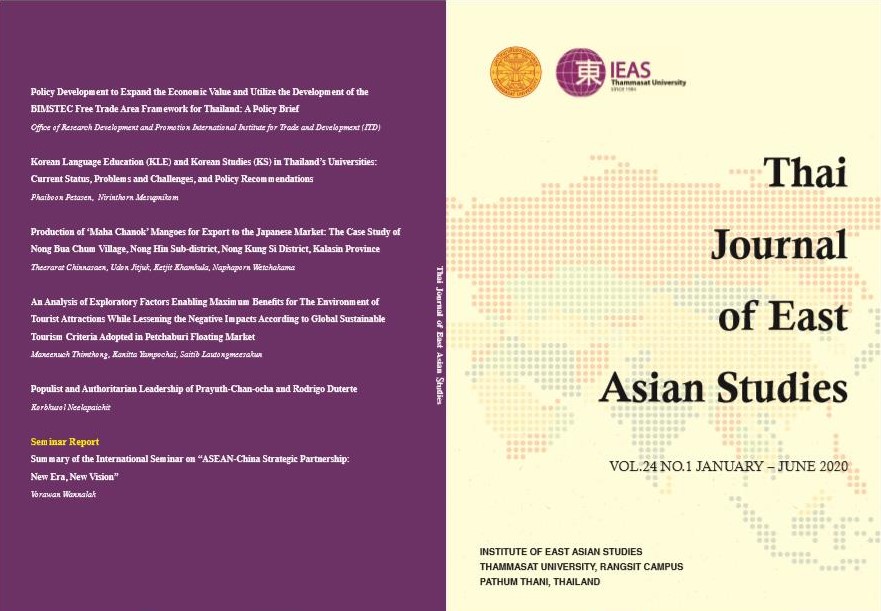An Analysis of Exploratory Factors Enabling Maximum Benefits for The Environment of Tourist Attractions While Lessening the Negative Impacts According to Global Sustainable Tourism Criteria Adopted in Petchaburi Floating Market
Keywords:
Exploratory Factor Analysis, The Maximization of Benefits for the Environment of Tourist Attractions while Lessening the Negative Impacts in accordance with the Global Sustainable Tourism Criteria, Floating markets in Phetchaburi ProvinceAbstract
The objective of this research is to analyze the exploratory factors that contribute to the maximum benefits for the environment of tourist attractions while assuring that the negative impacts are lowest, as prescribed by the global sustainable tourism criteria. The data is collected from samples who are 302 floating market operators in Phetchaburi Province. Exploratory factor analysis is conducted through the principal component analysis and Varimax. The results of this study show that the set of observed factors has the capacity to analyze 12 components, including the environmental risk which found eigenvalues of 1.47 and 1.09, the environment prevention in the risky circumstances with eigenvalues of 2.09 and 1.12, the protection of plant and wildlife with eigenvalues of 1.59 and 1.13, the emission of greenhouse gas with eigenvalues of 1.37 and 1.04, the energy conservation with eigenvalues of 1.22 and 1.05, the water management with eigenvalues of 1.40 and 1.00, the prevention of water deficiency with eigenvalues of 1.17 and 1.00, the water quality with an eigenvalue of 1.37, the wastewater management with eigenvalues of 1.71 and 1.08, the solid waste reduction with eigenvalues of 1.59, 1.31, 1.05 and 1.04, the sound and light pollution reduction with eigenvalues of 1.68 and 1.10, and the lessening of the impacts from transportation with an eigenvalue of 1.41. Noticeably, the observable variables which indicate eigenvalues greater than 1 will become new observable variables whose relations can be classified and can be rearranged into new components.
Downloads
References
Upper Saddle River, NJ: Prentice Hall. Global Sustainable Tourism Council. (2017, October 20). What is the GSTC?. http://www.gstcouncil. org/about/about-us/



